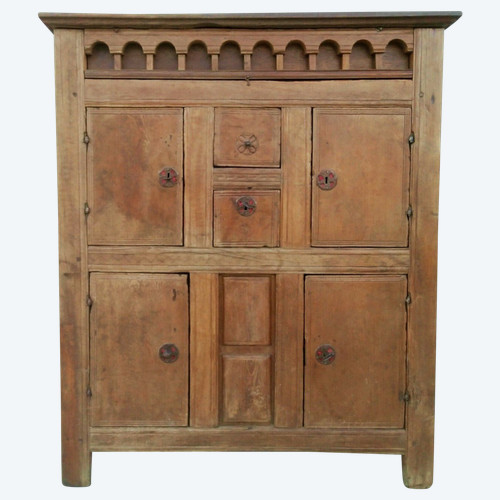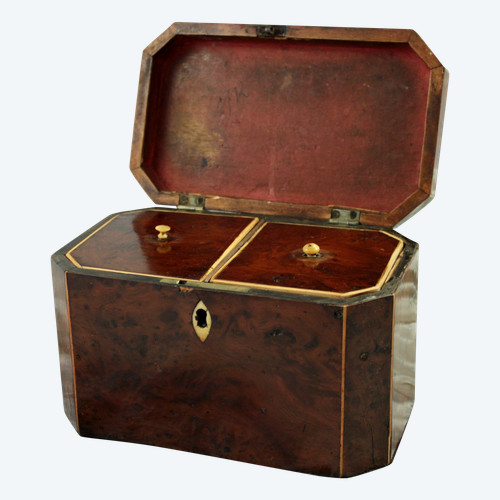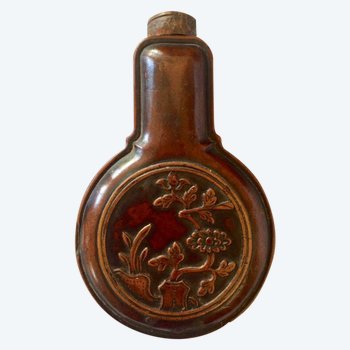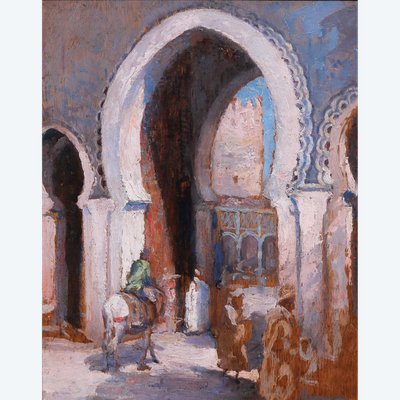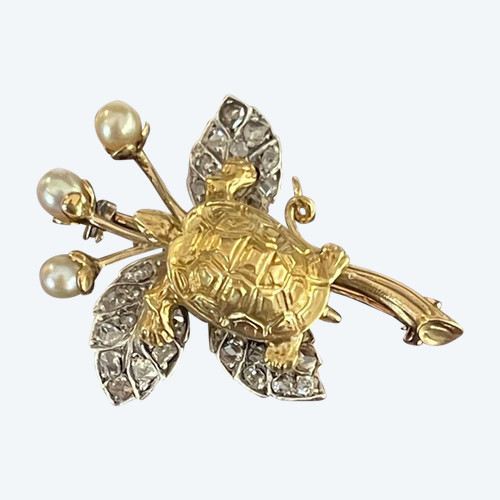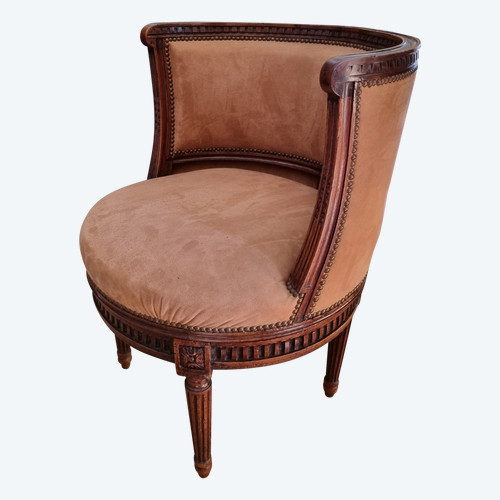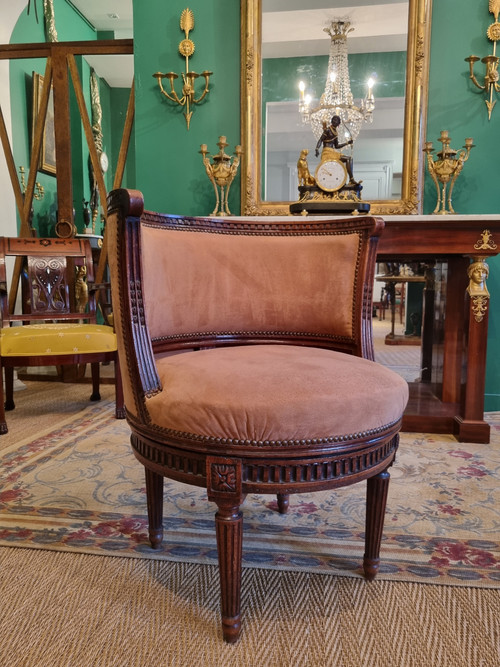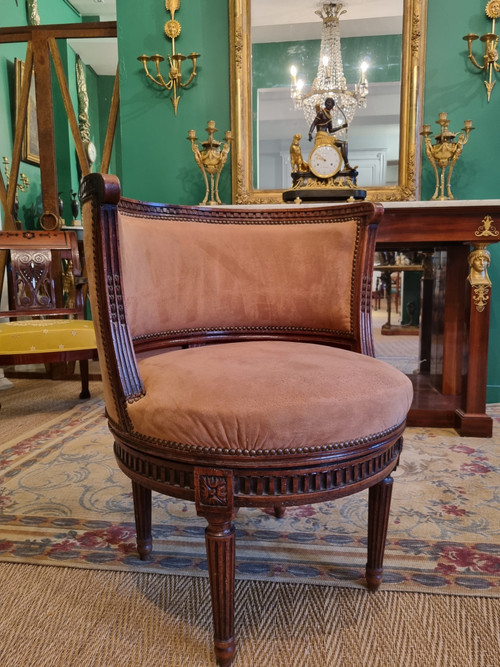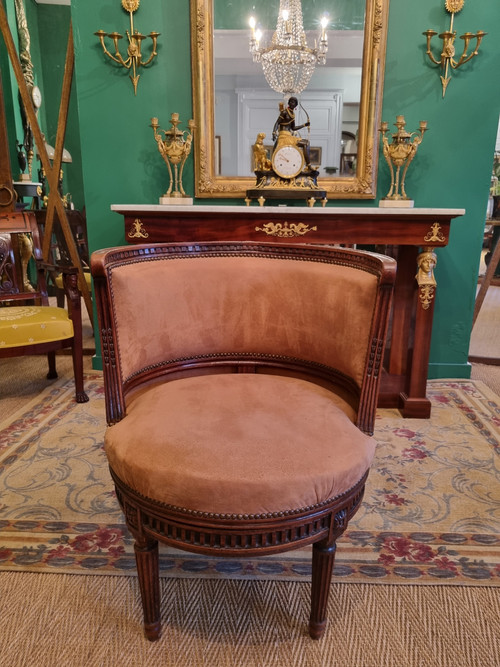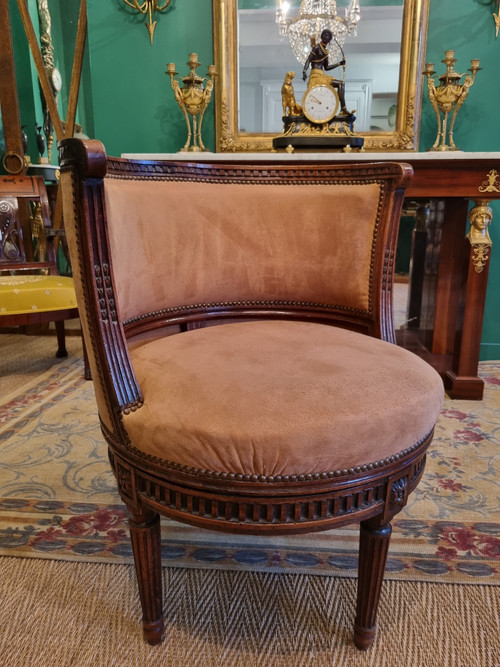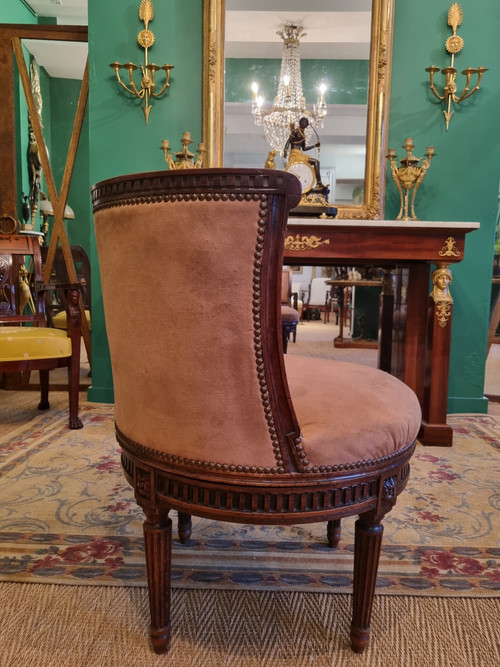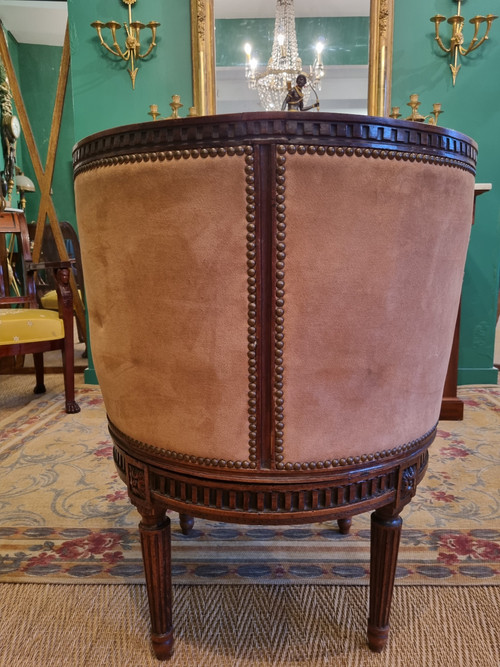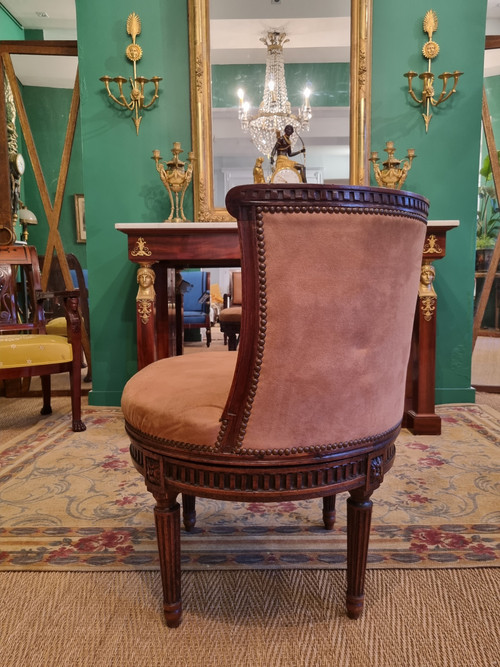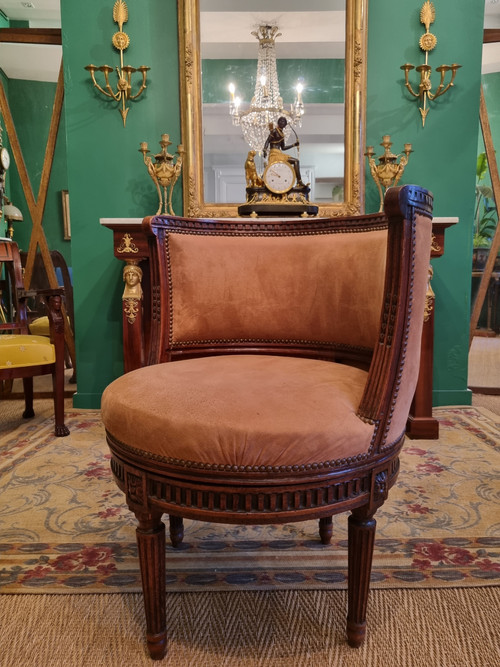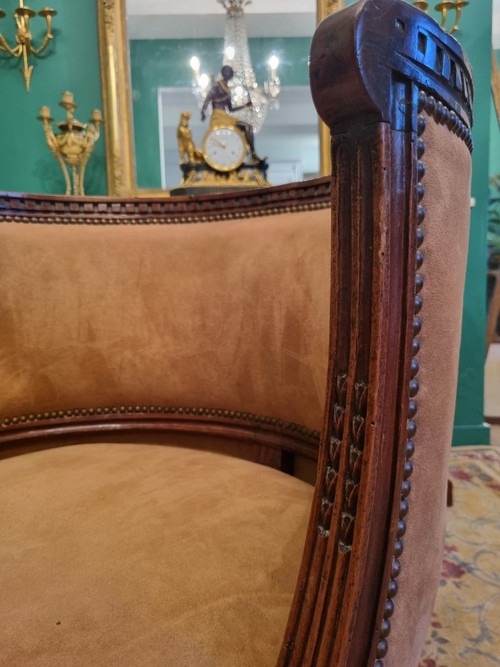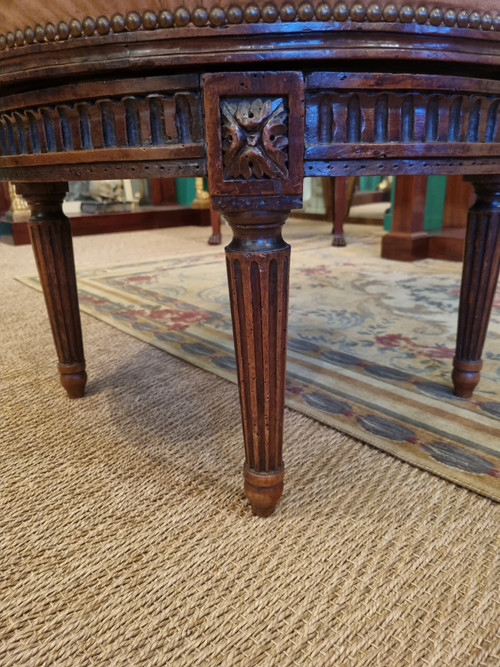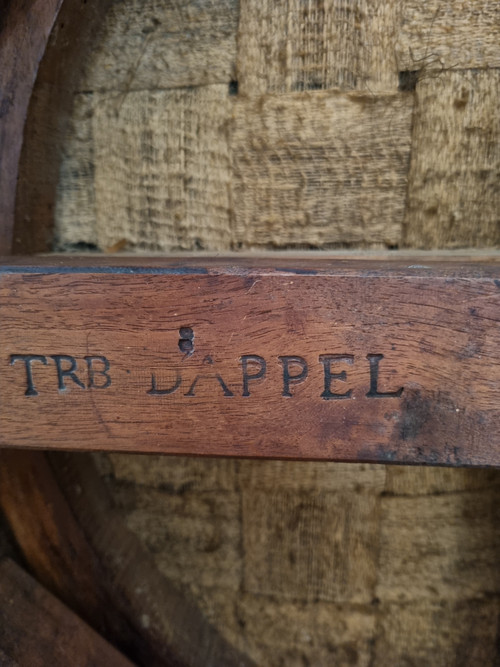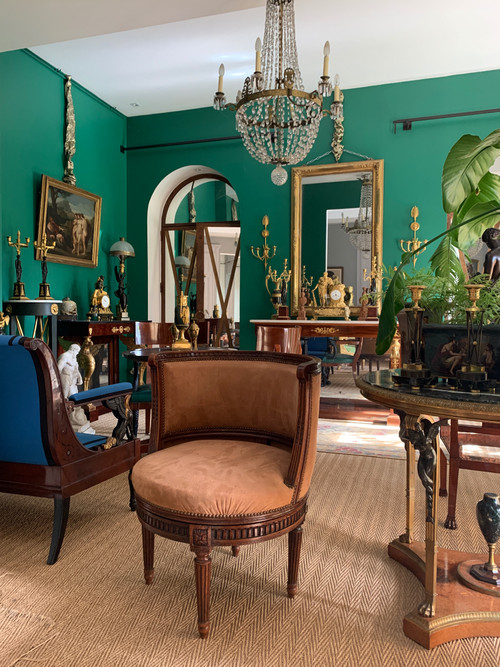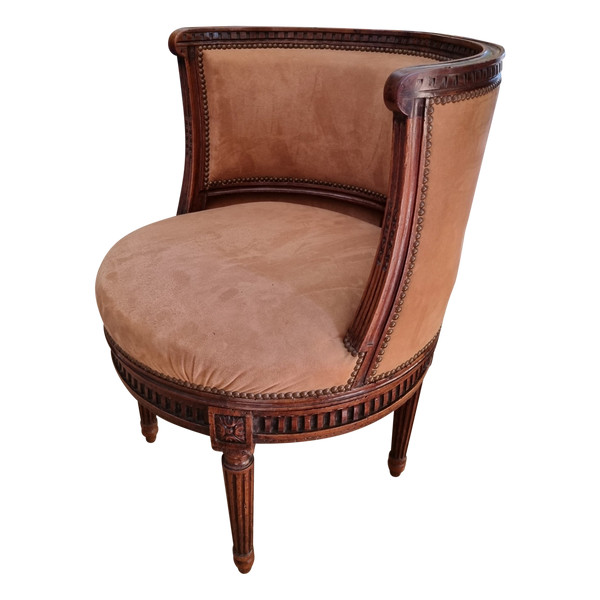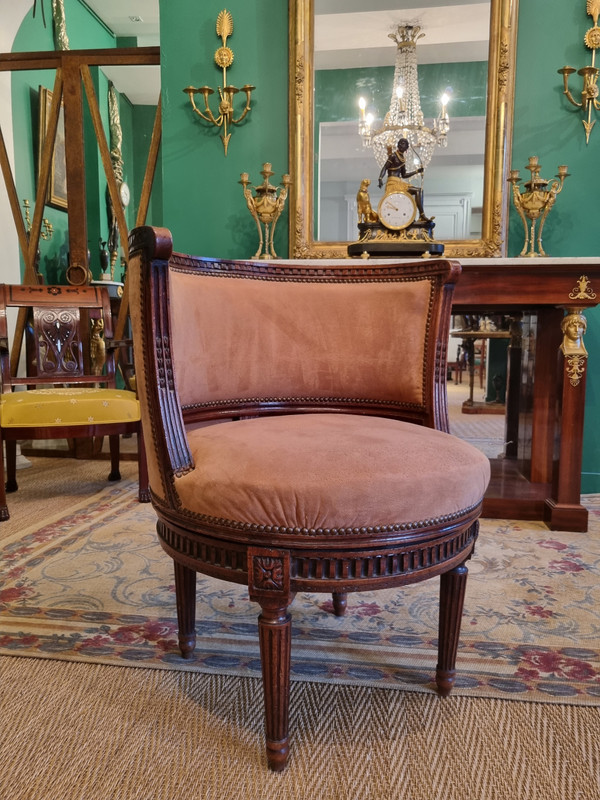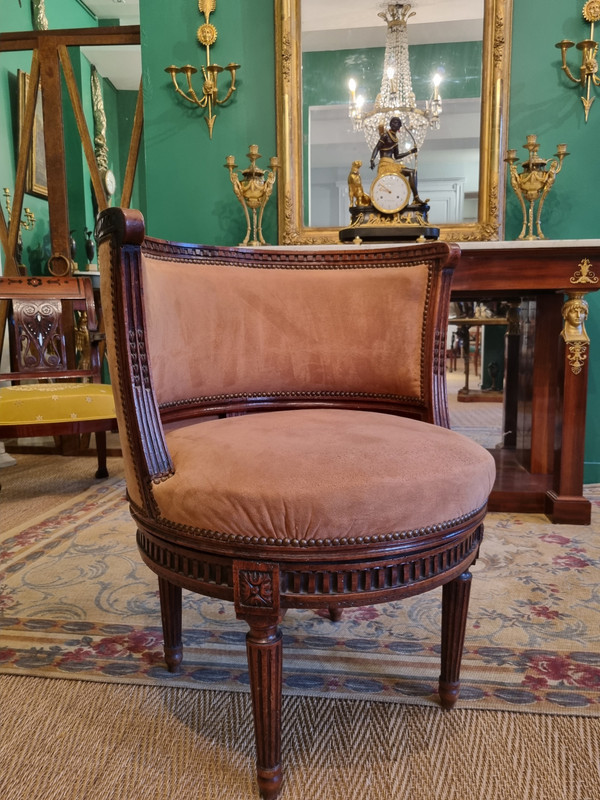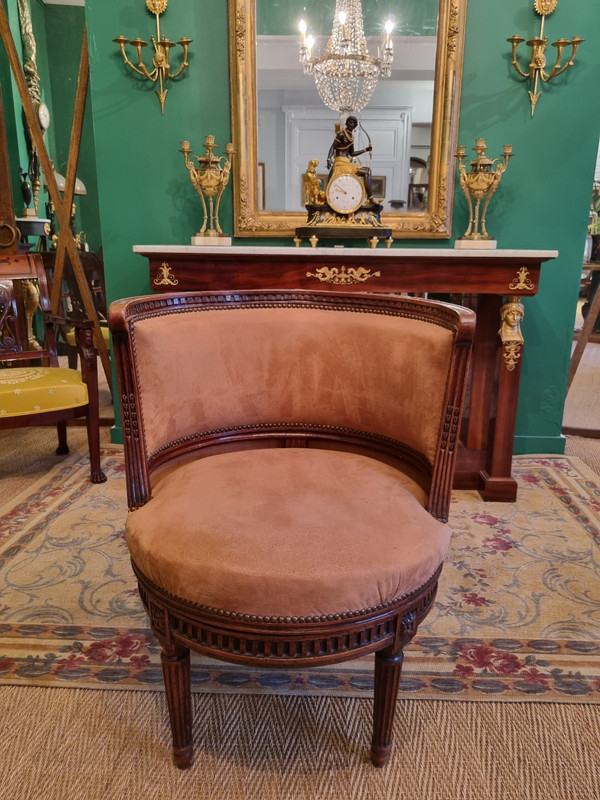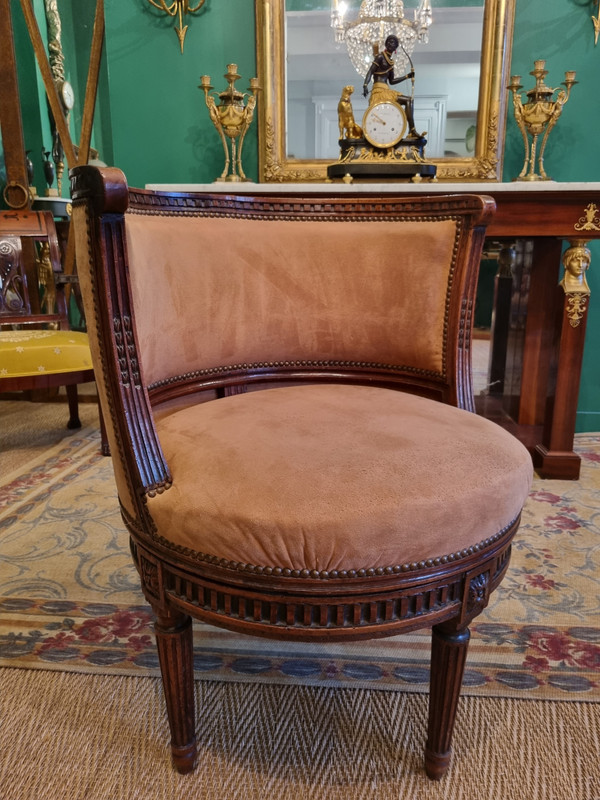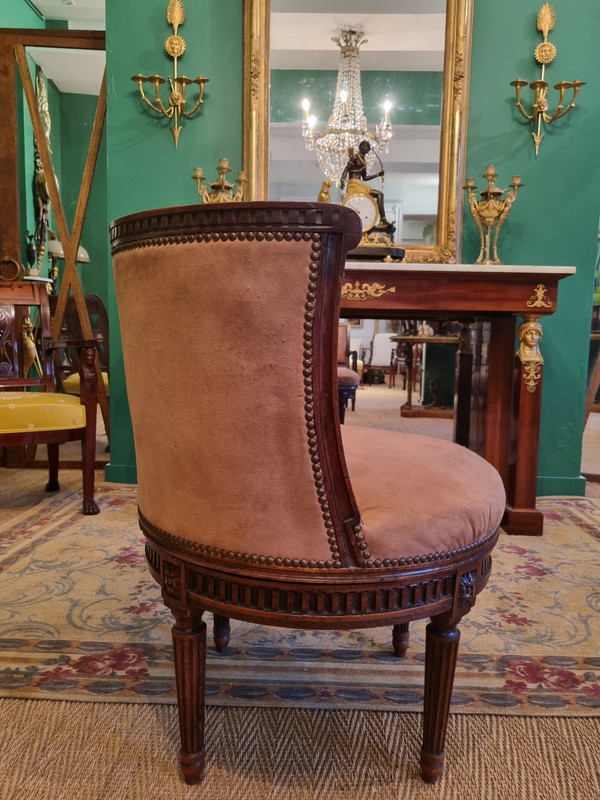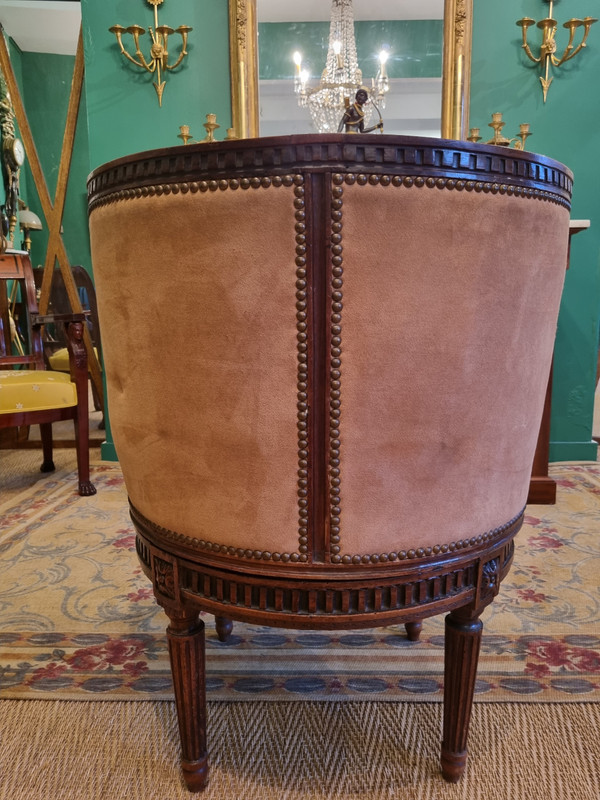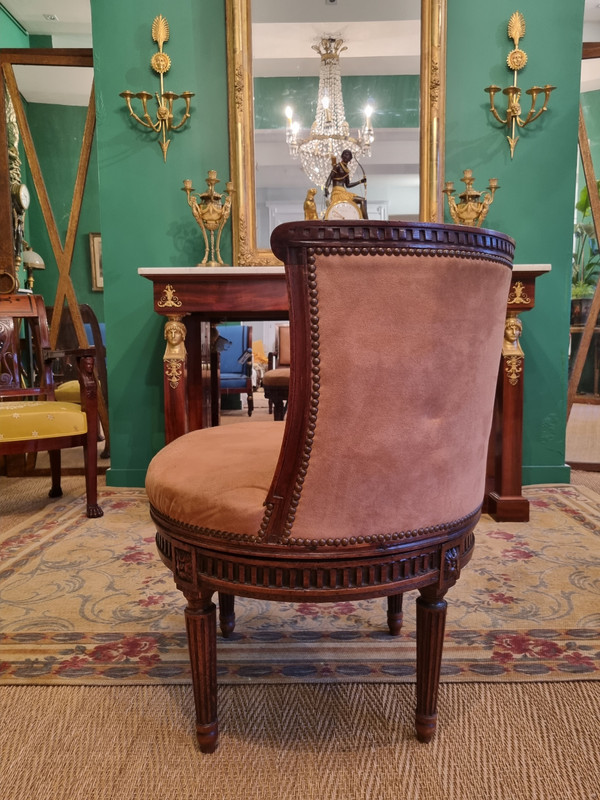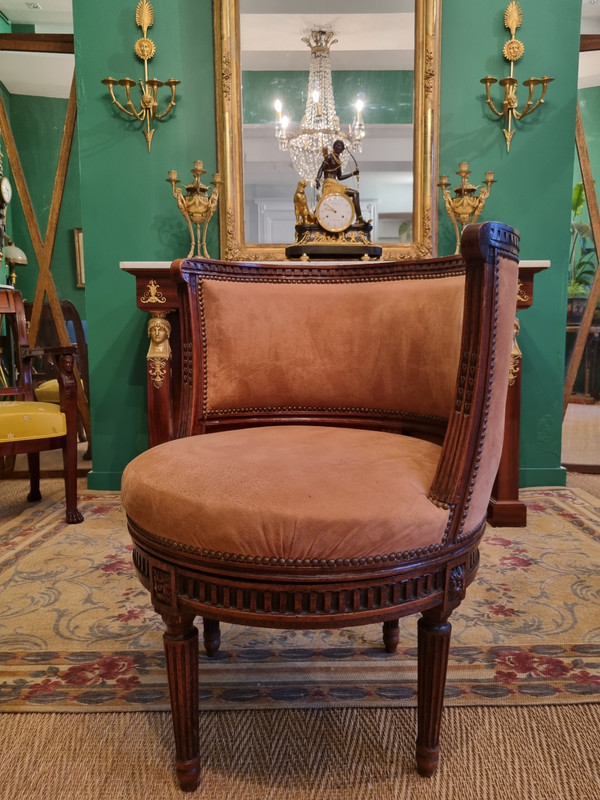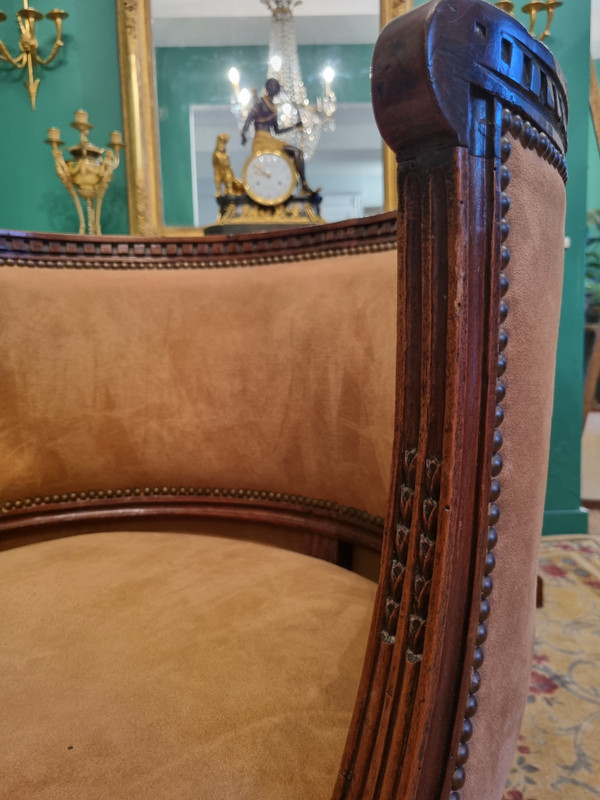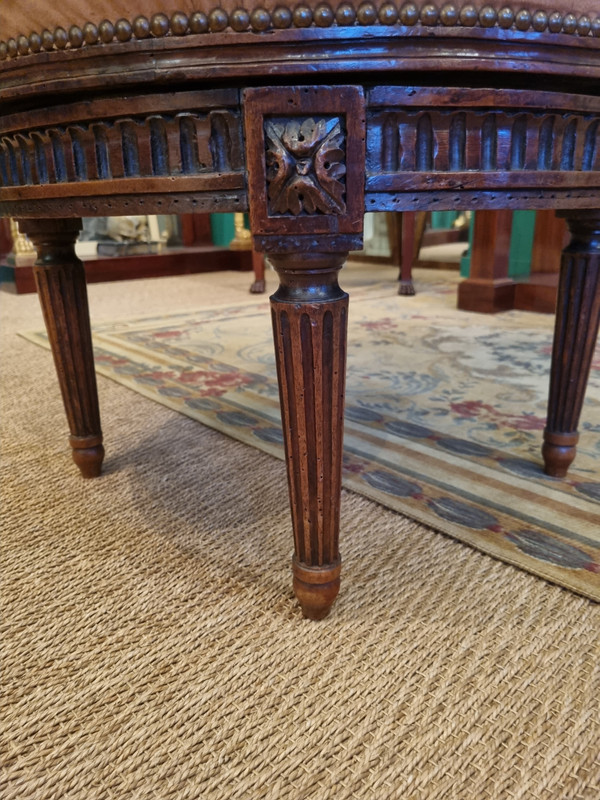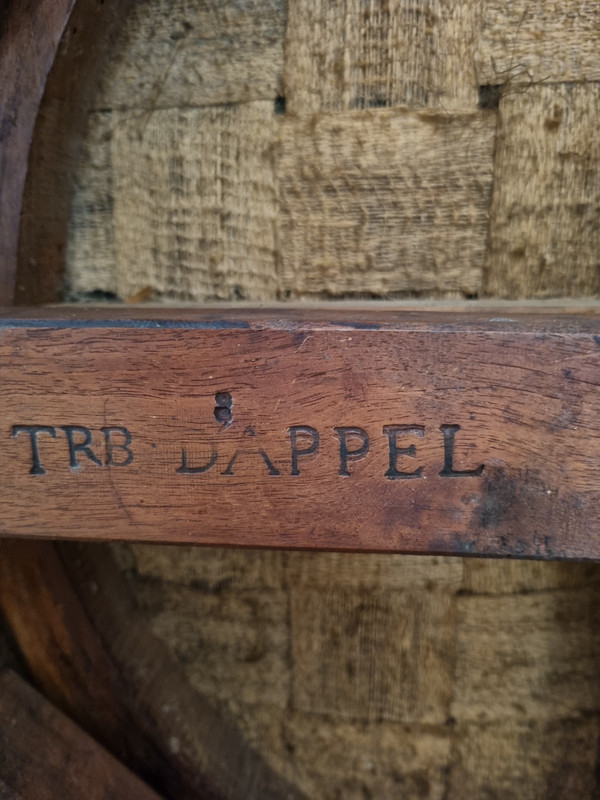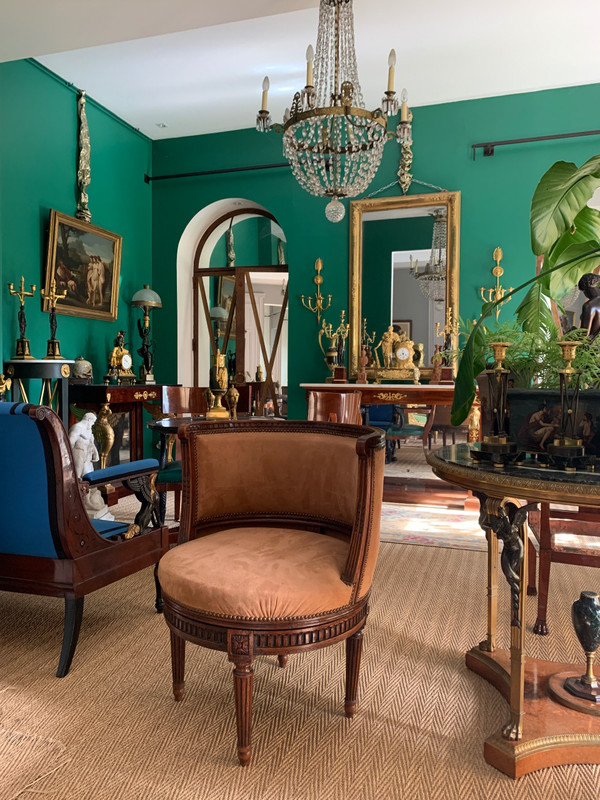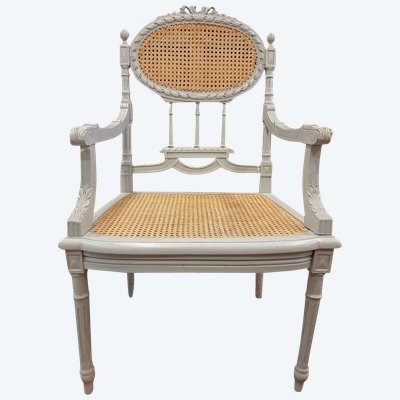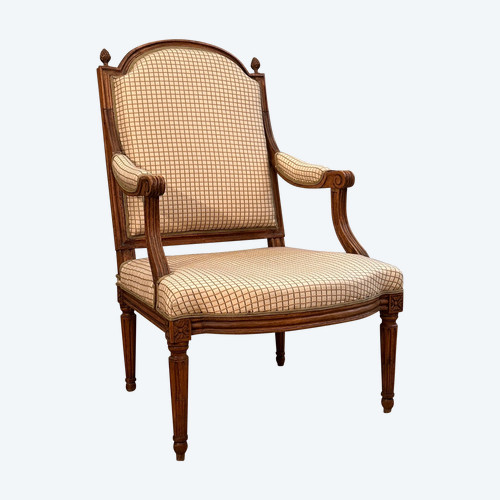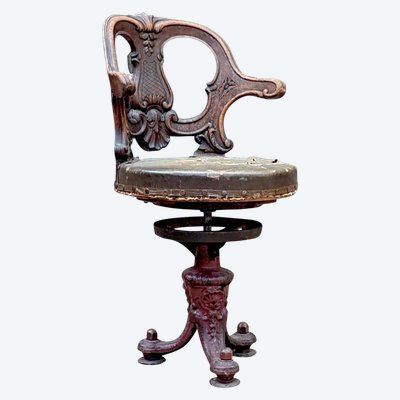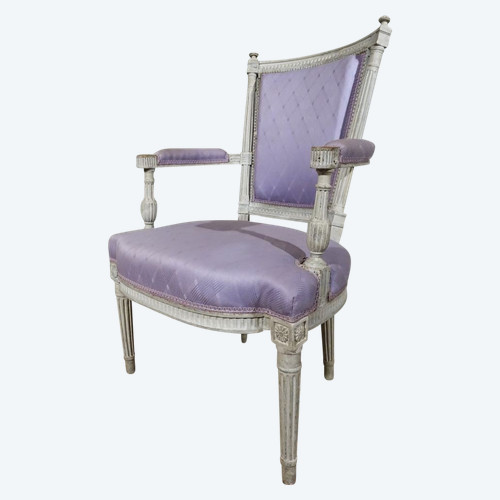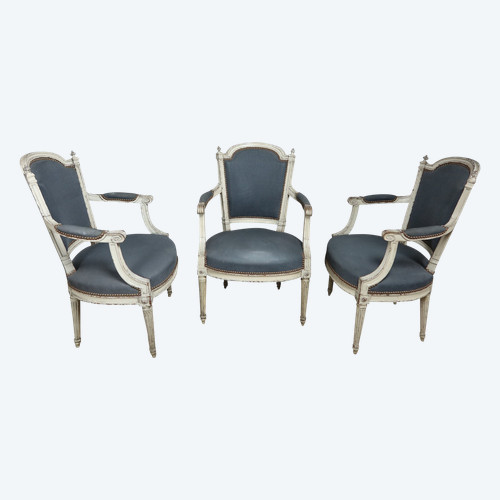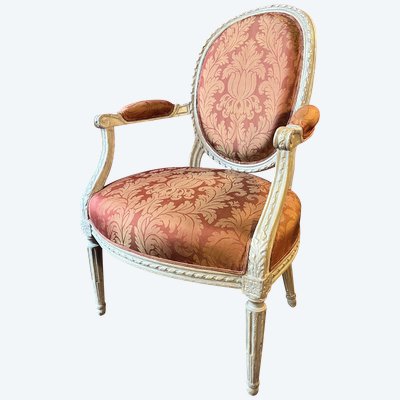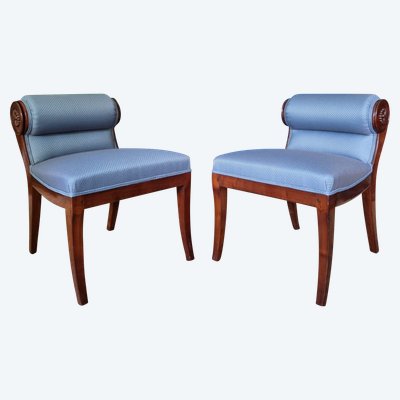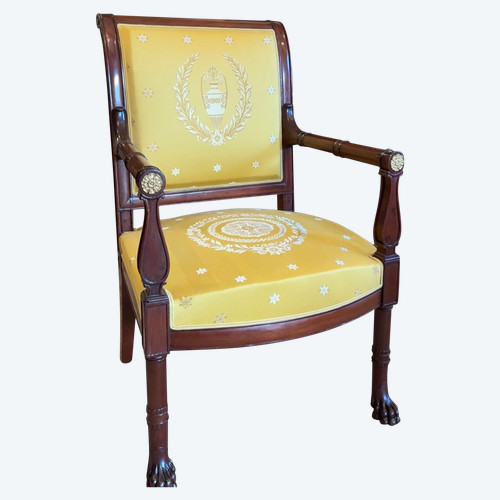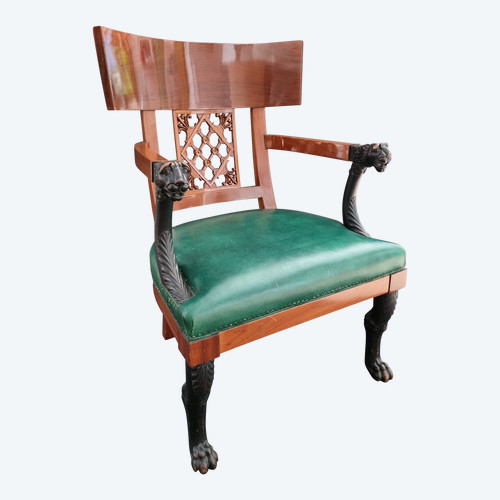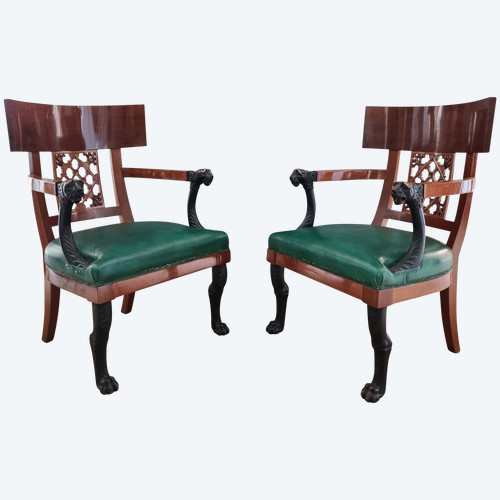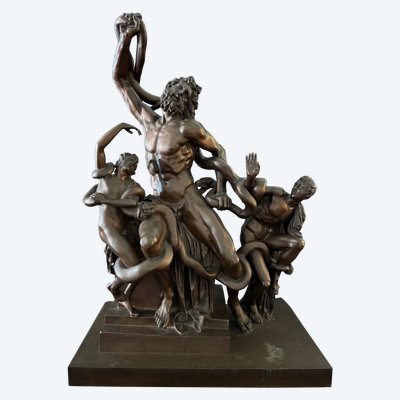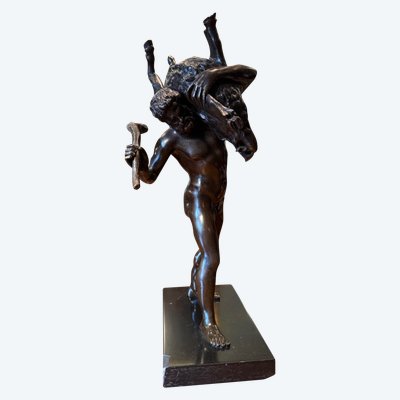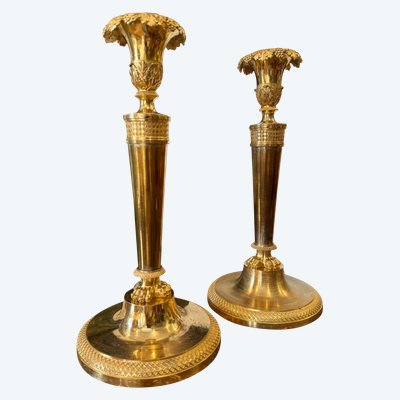This description has been translated and may not be completely accurate. Click here to see the original
Rare, large, molded walnut court president's chair with circular, swiveling seat from the Louis XVI period, attributed to CANABAS (Joseph GENGENBACH).
The wide hemicycle backrest features arm brackets carved with asparagus flutes, a swivel belt decorated with canals, and tapered, fluted legs.
This model of swivel chair, with its larger dimensions than the classic models, was intended for court presidents. A fire mark and inventory number can be found on the underside of the seat, indicating that this chair was used by Alexandre Jules Antoine Fauris de Saint Vincens (1750-1819) until the end of the Empire, at the Aix en Provence Court of Appeal in the late 18th century.
Although better known for his service furniture, Canabas made several swivel-seat armchairs, always of this type, with carved canals on the belt and tapered, fluted legs.
One can be found in lot 199 at Christie's sale of 28/11/2018.
Another, again at Christie's on 21/9/2011, lot 353.
Another, Aguttes sale 29/9/2015, lot 217.
Other similar armchairs in the books :
B. Pallot, L'Art du Siège au XVIIIe siècle en France, Paris, 1987, p. 19.
P. Kjellberg, Le mobilier français du XVIIIe siècle, Paris, 2002, p.160.
In a beautiful state of preservation, original pebble turning system.
Beautiful suede upholstery in used condition.
Fire mark: "Trb d'appel".
Attributed to Joseph Gegenbach dit Canabas (1715-1797).
Louis XVI period.
Provenance: Maurice Druon Collection (1918-2009):
Writer, academician, historian and minister, known to the general public for writing the 7 volumes of "Les Rois Maudits".
This swivel chair was his office chair.
Dimensions:
Height 86 cm
Width 68 cm
Depth 68 cm
CANABAS (Joseph GENGENBACH, known as):
German cabinetmaker, born in 1712, died in Paris on January 11, 1797. As early as 1755, he was established on rue de Charonne, as a privileged craftsman of the faubourg Saint-Antoine. During this period, his talents were employed by cabinetmakers Migeon and Œben, who bought from him "limaçon desks", "secrétaire screens" and removable tables for travel and military use. Such fancy furniture seems to have been Canabas's specialty.
He became a master on August 1, 1766, and continued to sell a large number of them. He then took over a larger workshop in the rue du Faubourg, opposite the rue Saint-Nicolas. During the French Revolution, Canabas struggled to save his business, which was once again very prosperous when he died under the Directoire regime. According to the advertisements, they included "secretaries, chests of drawers, pedestal tables, desks, sliding and gliding tables, cylinder night tables, consoles, men's and women's toilets, chiffonnières, office armchairs and other objects.
"Eighteenth-century cabinetmakers by François de Salverte".
Alexandre Jules Antoine Fauris de Saint Vincens (1750-1819)
President of the Parliament of Provence
First President of the Aix Court of Appeal
Still in office in 1789, Fauris de Saint Vincens survived the Revolution and was the 2nd magistrate to hold the position of First President of the Aix-en-Provence Court of Appeal under the Empire, while simultaneously pursuing a political career as mayor of the town and deputy to the Corps Législatif.
Continuing the family tradition of erudition, this bibliophile and correspondent of the Institut wrote numerous memoirs on history, numismatics and archaeology, especially after the Revolution. He belonged to several academies and was one of the founders of the Académie d'Aix. His library is one of the core collections of the Méjanes Library.
My furniture and objects are photographed in their natural state, without the use of artificial lighting. As a result, you can appreciate them as close as possible to their reality.
As with all my art objects and furniture, I take great care to offer them to you at a very low expert estimate.
As I don't put all my Furniture and Works of Art on Antikeo, I invite you to follow my Instagram account where you can enjoy all the latest news: @monantiquaire
Ref: IPK330D765
 Louis XIV oak sacristy cabinet sideboard
1.300 € EUR
Louis XIV oak sacristy cabinet sideboard
1.300 € EUR
 19th century mahogany burr veneer box
160 € EUR
19th century mahogany burr veneer box
160 € EUR
 Gold, Silver and Diamond "Turtle" Brooch
1.900 € EUR
Gold, Silver and Diamond "Turtle" Brooch
1.900 € EUR

